Colosseum and Mogul Thrash interview
Another day, another interview here at It’s Psychedelic Baby Magazine. We have a real treat for you today as James Litherland has agreed to be our hostage while we ask him a couple of questions.
James really needs no introduction; guitarist and vocalist for progressive jazz-rock band Colosseum since the band’s beginnings until Valentyne Suite, he appeared on Supershow, a music film made in 1969, where Colosseum played “Debut” and “Those About to Die” from their first album. He then went on to form Mogul Thrash – the main focus of this interview – featuring, among others, the exceptional talents of bass player John Wetton, later of King Crimson and Asia fame.
I’d like to take you back to your teenage years; did you grow up in a very musical household? Which bands turned you on to music and made you want to learn the guitar?
James Litherland: I was listening to music from a very early age. My mother and father both loved music and had a record player and would play songs like “20 Tiny Fingers, 20 Tiny Toes” and “Close The Door They’re Coming Through The Window”, that kind of thing and my dad used to whistle around the house. When I was about 2 or 3 my mum would leave me with a friend (child minder) while she went out to work and her husband (Les) ran a Kazoo band and the girls in the family would dress in white shirts, short flaired dresses and white plimsoles and shake these cardboard tubes with paper “tassles” and they were the “Ra Ra Girls”, they would play and parade at the Oldham town carnival during bank holidays (a very English tradition) and they would rehearse in the kitchen. I would watch while waiting for my mum to pick me up after she finished work. Not long after, my “Uncle Les” formed a harmonica gang and had an act very like “The Three Monarchs” and the “Morton Frazer Harmonica Gang”. His son Brian was in the band and I still see him. The format was a Lead harmonica player, rhythm (chords) section and a bass, all harmonicas, and there was a dwarf who was always jumping up to try to get to the microphone and they would ignore him or slap him down, (part of the act a la Morton Frazer) however, when he finally made the mic, of course he was a great player. I used to sit and watch the rehearsals and one day, Uncle Les gave me a Hohner Chromatic on which the slide button had broken off. So that was my first instrument at about 5 yrs old. A little later my mum bought me a cardboard clarinet and I went to the Oldham Music College and asked for lessons but they turned me away because it wasn’t a proper clarinet. Not long after I asked for a guitar for Christmas, which I got when I was 8. By this time I’d heard Lonnie Donegan doing “Rock Island Line” (Leadbelly) and “Hang Down Your Head Tom Dooley” which was the first tune I learned to play (only the melody). It’s important to understand that at this point I’d never seen anybody actually play a guitar.
I got bored with playing tunes quite quickly and the guitar sat in a corner for a couple of years. Then one day I was watching the television (quite a new thing as my parents had only recently hired one yes, HIRED, in those days nobody could afford to buy one) and I saw a play with someone sitting on some stairs playing CHORDS and I thought “Wow I want to do that” so I went to the the local music shop and bought a book on how to play guitar (“Play In A Day” by Bert Weedon, which I still have) and the next day I was playing 2 or 3 chords and writing songs.
What early bands did you play in prior to joining Colosseum and could you detail how you ended up getting involved with Jon Hiseman’s outfit?
I played my acc guitar and sang all the time and the next Christmas my mum and dad knew someone who was selling an Electric guitar (a Broadway) and they bought it for me, along with a Fal amp. I’ll never forget that Christmas, I played the whole day until late evening, I loved it. Soon I got to know some other people who played and began to play with them. The first real band was called “The R & B Sect” and we played “Baby Please Don’t Go” (before “Them”), “ Too Much Monkey Business” and other R & B numbers and started doing Gigs (Weddings etc.). I was 11 by then. Next I joined a band who were quite big locally. They were called “The Puzzle” and it was because I went to school with one of them and we got on both musically and as friends.
He is called Steve Bolton and has since played with “Atomic Rooster”, “Paul Young” and I think he played with “The Who” at one point after Keith Moon and John Entwistle died. We are still friends.
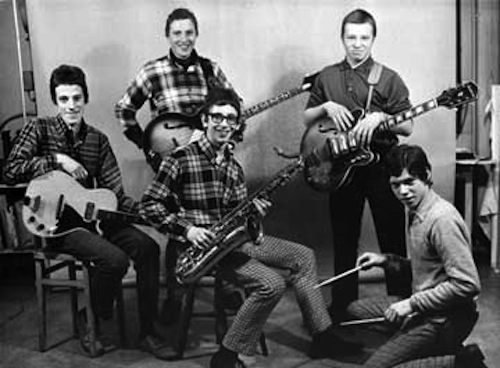
We were playing Soul numbers (Stax etc.) and were playing Wilson Picket, Lee Dorsey etc. The line up was 2 Guitars, Sax, Bass and Drums and I was playing lead guitar and Steve on rhythm. We did a lot of gigs and came to London to make a demo, which is when I first fell in love with London.
Next, again at school, I met a guy who sang in a band and their lead guitarist was brilliant. They had just lost their rhythm guitarist and asked me to join and, seeing it as a further opportunity to improve, I jumped at the chance. They were called “The Go Go” and did lots of Motown stuff and we (as did “The Puzzle’) sang harmony as well. We did lots of gigs.
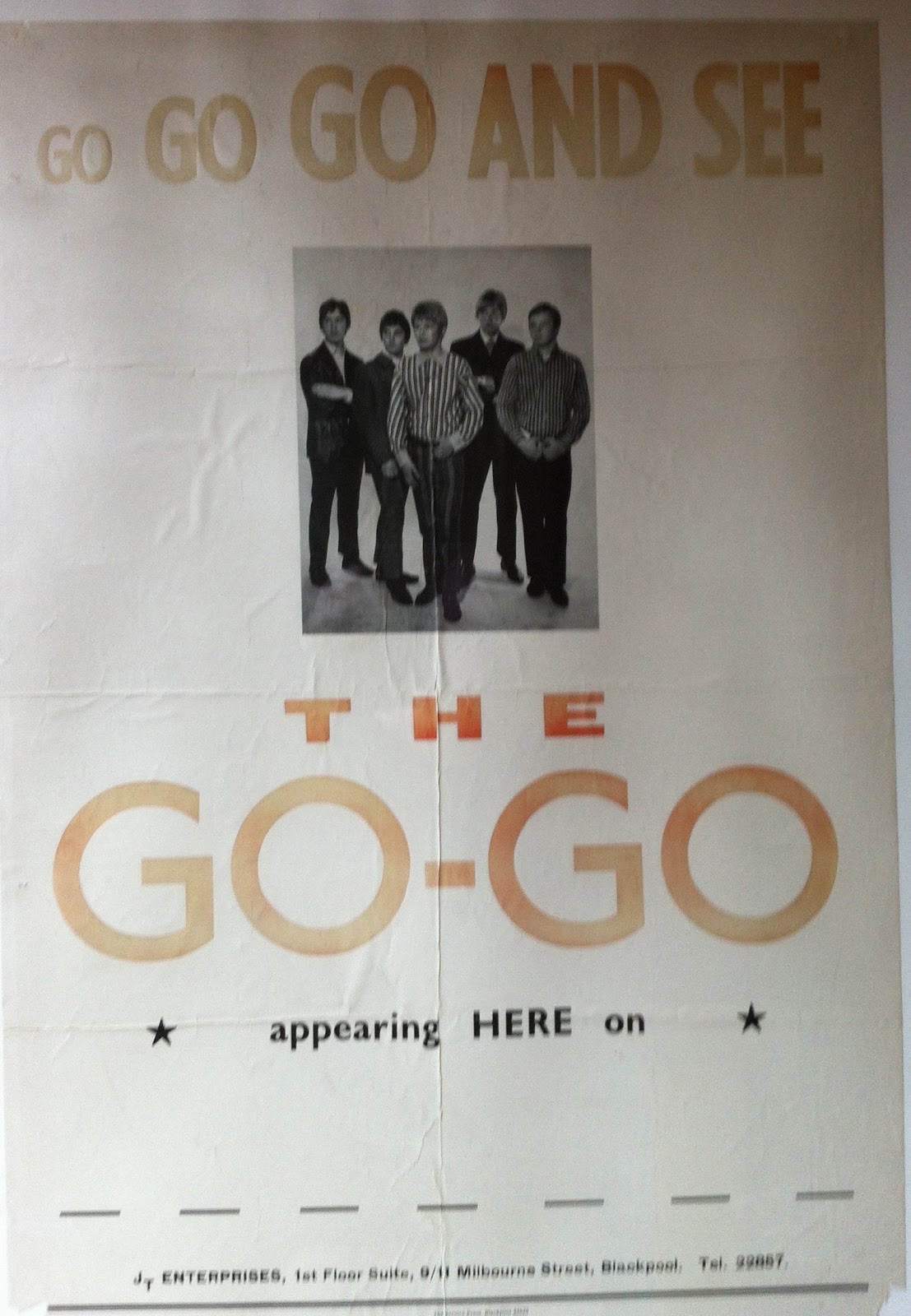
A while later Hendrix came out and we did some of his songs (“Purple Haze”, “Stone Free” etc) as the guitarist could play anything. We rehearsed at the singer’s house (Jack) in the basement. He was quite a genius and could fix the amps, the van, anything that needed fixing and he went on to become a nuclear scientist.
Next I formed a blues band (The Ghobi Dessert Canoe Club) and by this time I had been going to clubs (and playing at them) in Manchester and was seeing people like Howlin’ Wolf, T Bone Walker, Buddy Guy, Sonny Boy Williamson etc. Also John Mayall, Steam Packet, Cyril Davis etc. I also, very importantly, had seen The Graham Bond Organisation with Dick Heckstall-Smith and was very impressed.
“One week later I was living in London and was a professional musician working as a member of Colosseum. I never did another “proper” Job.”
By this time I was working in a normal day job and was doing gigs at night.
One day there was an accident at work and I was half an inch from getting very badly hurt. The guy I was helping WAS hurt very badly. It was the fault of the managers / directors of the company and they blamed us. I was extremely angry and it showed. They harassed me for 2 weeks during which my anger grew to such an extent that I just walked out and knew that I never, ever, wanted to do another “proper” job. I walked straight into the newsagents across the road and bought a Melody Maker music paper and looked in the ads at the back. I saw the ad for Jon Hiseman’s Colosseum featuring Dick Heckstall-Smith. I didn’t know of Jon but I’d seen Dick and thought it would be great to audition as, even if I didn’t get the job I would have learned a lot and played with some top musicians. With the only money I had I immediately phoned the number on the advert.
One week later I was living in London and was a professional musician working as a member of Colosseum. I never did another “proper” Job.
Could you share any great memories you have of your time gigging and playing with Colosseum? Any funny stories or near-disasters on stage, that sort of thing!
About a week after joining Colosseum I was asked to play, with Jon, on a track that was being produced by Mike Hugg from Manfred Mann. I was really excited as, only one week before, I had been working in a job in Manchester and here I was doing a session (paid) for a guy off the television. After a few hours, whilst listening to the playback in the studio, I began to get a pain in my stomach, I’d had it before a couple of times but thought nothing of it. This time however it started to get really bad and I was sitting on the floor against the wall writhing in agony.
Jon was not happy with what he saw and drove me to the hospital. I was diagnosed with appendicitis and, although not life threatening at that time, it needed to be sorted out and so I was booked in for an operation to have my appendix removed. The debut gig for the band was in Scarborough in a few weeks time and I was given 2 weeks in which to have the operation and recover in time for the gig. I had the operation in London and got the train to Manchester where I stayed for a week and then got the train to Scarborough to do the gig. The wound from the operation had not really healed by this time, I still had stitches in and the cut was exactly where my trousers went round my waist so I had to stuff loads of cotton wool down my trousers to stop the waistband rubbing on my wound. My biggest fear was that I would burst the wound open as I was singing. However everything turned out well and the gig was a great success to a very packed room and critical acclaim. “The Show Must Go On”.
Do you remember how you got signed to the Fontana label to record Colosseum’s first album, Those Who Are About To Die Salute You? What memories do you have of those recording sessions?
I wasn’t involved in any of the business decisions. I was happy to have got the job and basically did as I was asked. Jon was the leader and he had everything sorted out with Gerry Bron, the manager, before I ever came on the scene. I arrived at the studio at the time I was told, and went with the flow until we finished for the day. I was really happy to be in that situation and felt very lucky. I had recorded in studios a few times before but never at this level and to realize that this was my job was just fantastic. One thing that I do remember very well is that we changed studios 3 or 4 times because Jon was not happy with the drum sounds and so a lot of the tracks were recorded 3 or 4 times in different studios.
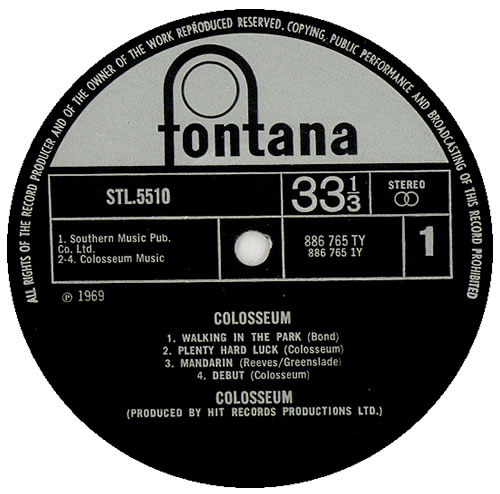
Valentyne Suite is undoubtably Colosseum’s most well-known album and is widely considered the band’s magnum opus. “Elegy” and “Butty’s Blues” are both your compositions; could you tell us about each of those songs and a bit about each of the other tracks on the LP? What were some of your favourite moments recording that album?
Although I had been involved in writing on “Those About To Die” by the time it came to the second album I was finding my feet much more and was writing much more and was getting more confident as I was having my songs accepted.
“Butty’s Blues” was really just a 12 bar “Butty” being the nickname that Colosseum had given me (It is what they call a sandwich in Manchester). The best part of that song, and I feel the reason for it’s success, was Neil Ardley’s arrangement which was really superb. It was fantastic hearing my song given that treatment. Interestingly I have never played “Butty’s Blues” since the day I left Colosseum, I wouldn’t even know the words unless I listened to the album again.
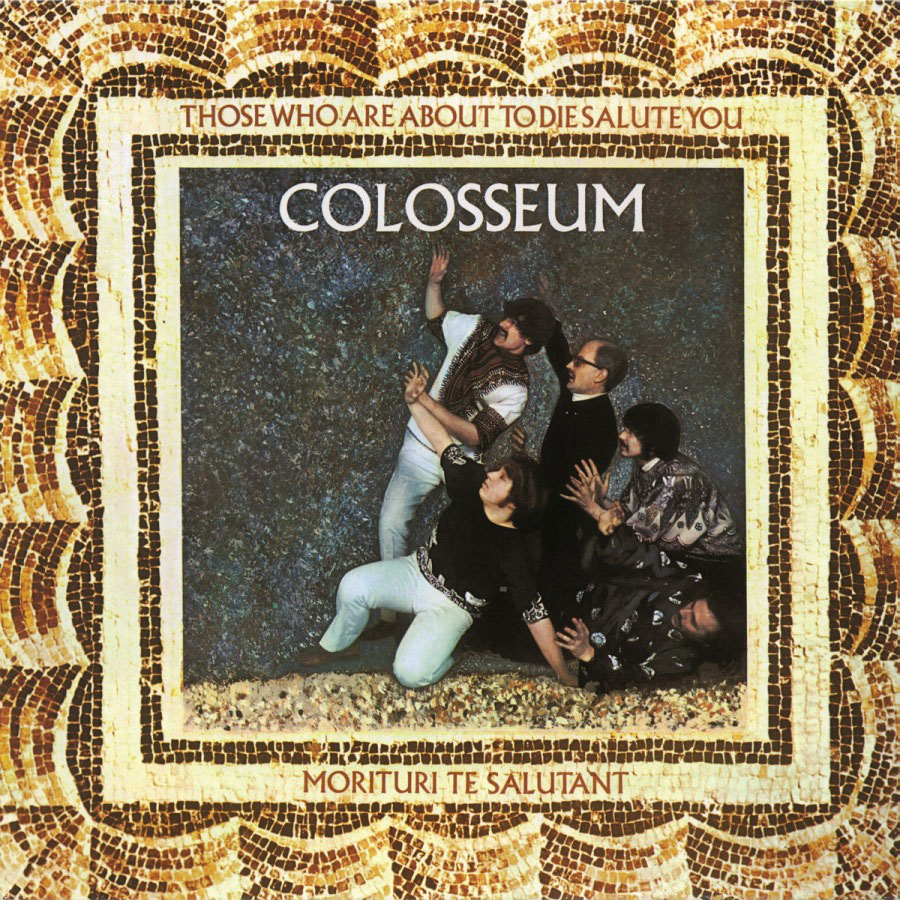
“Elegy” however was a completely different situation and I felt that it stood on it’s own merit as a song, no matter what the arrangement, in fact, when I play live even now, if it’s an acoustic gig I play it on an acoustic guitar.
It came about one night, I was now completely in the Writing “Zone” and thought of stuff continually. I woke up one morning at about 4.00 am and had the whole thing in my head. I got up, wrote down the words, played the chords on my guitar which was by the bed and went back to sleep. It must have taken less than 5 minutes. The rest, as they say, is history.
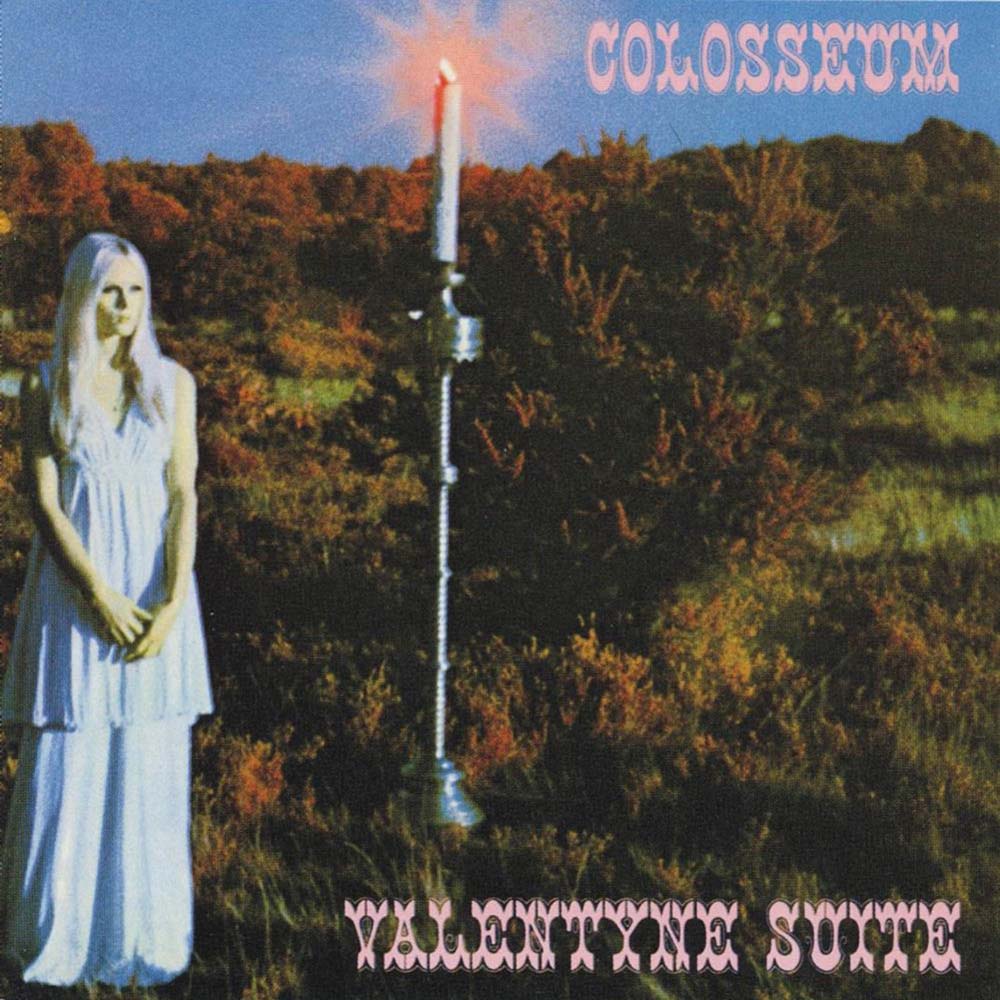
You played many festivals and concerts with Colosseum – too many to list, I’m sure! If you could only pick a couple of memorable gigs, which would you choose?
I’ll never forget the first gig in Scarborough as it was my very first professional gig.
Other than that, a few gigs really stick in my mind.
The Supershow was very special, it was full of people that I’d looked up to not long before I was in that position. Stephen Stills, Buddy Miles, Buddy Guy, Roland Kirk to name just a few of the greats that were there that day.
Another gig we did was the Bath Festival, which was the first time I’d ever done a gig where there were people as far as the eye could see (I think about 50,000).
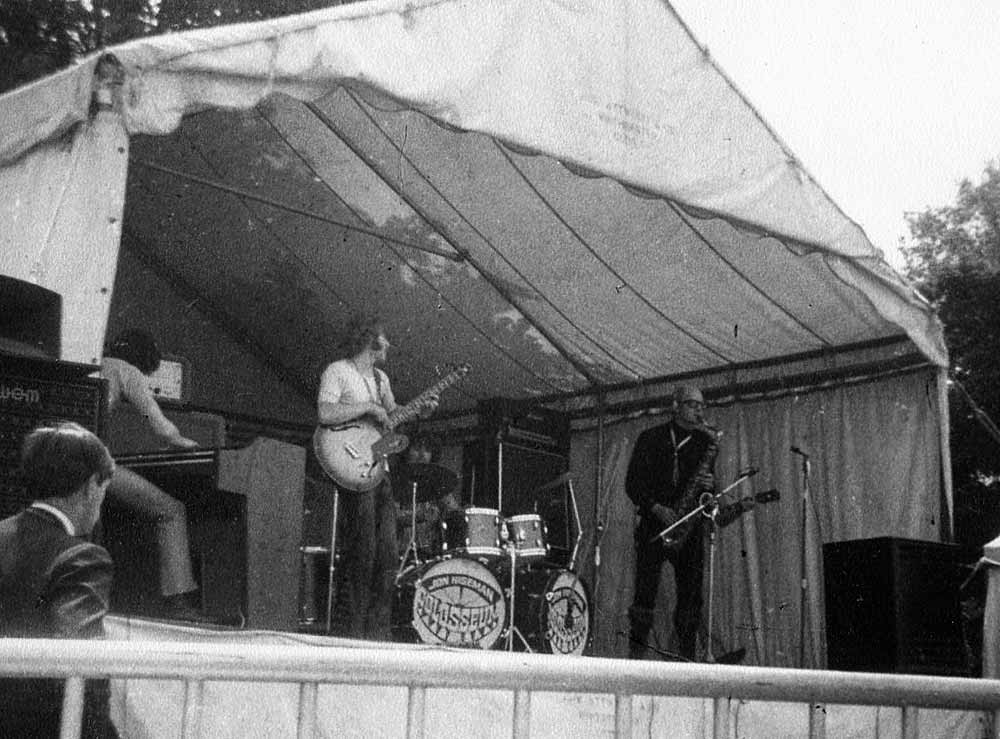
But THE most memorable gig without a doubt was when we played at the Filmore West in San Francisco (it may be of interest to your readers that this was at the exact time that Woodstock was happening and we were booked to play The Filmore and then The Whiskey A Go-Go in L.A. Had we been on the East coast at that time we would have been on Woodstock. Of course no one knew then how big that was going to turn out).
The Filmore was featured on albums like “The Rock Machine Turns You On” etc which were huge influences on me, Paul Butterfield, Elvin Bishop, Mike Bloomfield etc so just to be there was fantastic. We played there for 3 nights and were bottom of the bill to The Youngbloods, and a band called CTA (Chicago Transit Authority, later to change there name to Chicago) and I thought they were just fantastic.
By this time I was really into writing and SONGS and I felt that Colosseum were mostly not on the same wavelength. They were much more into solo’s and that kind of thing and I was beginning to feel that Jon especially was not “laying down the groove” enough. I was beginning to struggle with the feel of the material we were doing. When I stopped playing rhythm (to do a solo) I felt that the rhythm section fell apart and although it was very “clever” I was beginning not to feel it any more.
Seeing Chicago play was like lifting the curtain on all the things I was feeling.
They had a great Singer playing great songs but they were “jazzy” in a very “rocky” way. I knew at that moment that the feelings that had been creeping up on me for a while were totally valid and this put substance to them. I knew now why I had been feeling the way I was.
Another thing they did that I’d never seen before was that they had small amps and were miking everything up, which meant the Brass could hear themselves and because they had a guy on the desk, the balance out front was fantastic. Most guitarists at that point (me included) had Stacks taller than themselves pumping out so much volume that the balance on stage (and off) was terrible.
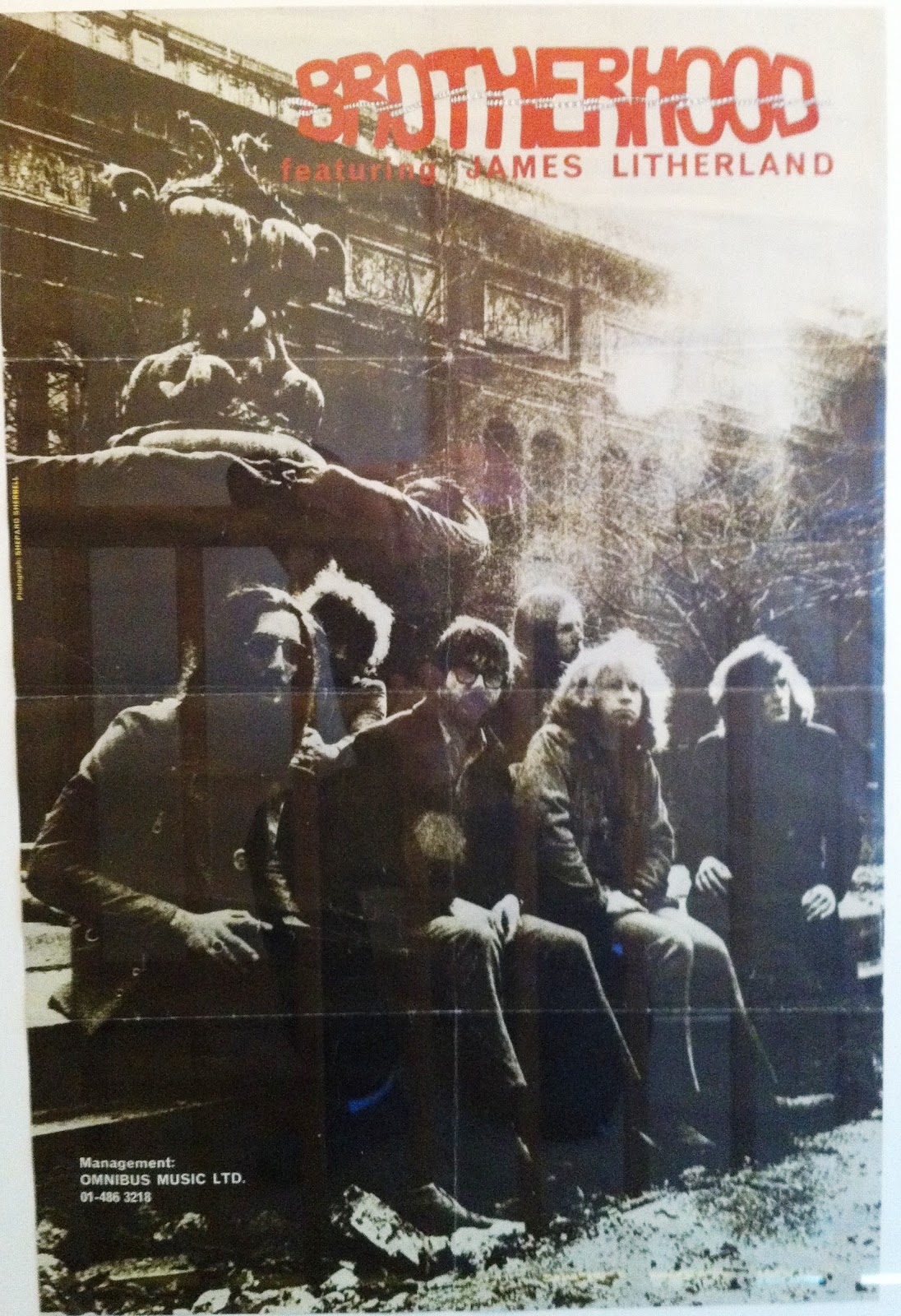
Why did you end up leaving Colosseum and could you tell us how Mogul Thrash came together? I understand you’d formed James Litherland’s Brotherhood and that with the addition of John Wetton, the band changed its name to “Mogul Thrash”. How did John Wetton come on board?
Just before we left for the States I found out by accident that everybody in the band was getting more money than I was and although I certainly wasn’t there for the bread I felt insulted and hurt. I was, after all, doing three jobs, writing, singing and playing and I certainly felt that I was pulling my weight. I think my attitude changed at that point and it must have come across. After the Fillmore and a few problems we had on the tour it was probably apparent that things were changing and me not being known for my diplomacy, I probably didn’t do myself any favours.
On the next tour of Europe I was asked to leave. Although I was a bit shell shocked, I also felt that I hadn’t been treated particularly well and so I thought it was opening the door to my next project and I made my mind up to form a band. The best band that put into perspective what I needed I had recently seen in San Francisco and that’s what I wanted.
I had done some sessions with Mike Rosen on the “Jade” album and he played trumpet as well as guitar. I met Malcolm Duncan via Pete Brown, a good friend of Dick’s and he knew Roger Ball from Scotland. I’d heard of a drummer and bass player playing with a guy called Jess Conrad (sorry John) who was a bit of a musical joke albeit very likeable. So we went to see them and asked them to join. It was John Wetton and Ed Bicknell. It wasn’t long before it was apparent that Ed was not going to work out. Although we all liked him, his drumming wasn’t up to it.
I had to tell him he had to go but he was great about it, he totally understood. I think I did him a massive favour as he went on to manage Dire Straits and to the best of my knowledge still manages Mark Knopfler.
At this point we had signed to a management company and it was then that we found Bill Harrison for the drumming position. He came to an audition and all the other drummers thought I was looking for a budding Jon Hiseman. Bill sat down on someone else’s kit (his was coming from Germany where he’d been gigging with Glass Menagerie) and as soon as he’d tuned it to his liking started playing a (Loud) groove. Everybody in the band looked at each other and John and I jumped up and started jamming. There was no need to discuss anything, he was IN.
It was a while after that we changed the name to Mogul Thrash.
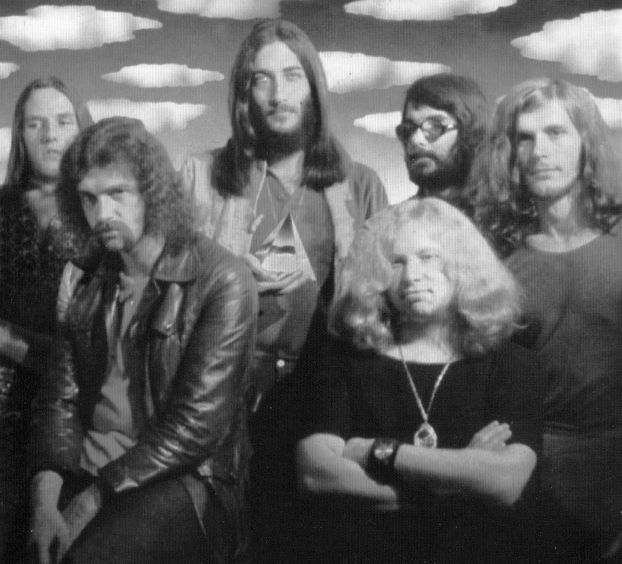
Who came up with the name “Mogul Thrash”?
There was a TV programme that everybody used to watch on a Saturday night called the Michael Miles Show and he had on it a game called the “Yes No Interlude” where he would ask contestants questions very quickly, and they would have to answer without using either Yes or No. If they did, a man standing next to them would hit a gong and the contestant was out.
The late great Spike Milligan had his own show and it was hilarious and the band would watch it every week without fail, sometimes we would be in tears of laughter.
He did a sketch of the Michael Miles Show wearing a false nose and called him Mogul Thrash.
We loved it and the rest as they say…
The band debuted with a single “Sleeping In The Kitchen”, followed by a full-length, self-titled album on RCA in 1971. What can you remember about the recording of that album and what gear did you use personally?
The album actually came out first (which is why it isn’t on it). “Sleeping In The Kitchen” was written by myself and Pete Brown and came out really as a taster for the next album which obviously didn’t happen.
Recording the album was a very happy time and was produced by Brian Auger who was also managed by our manager. He was a very genuine and good man and an excellent musician who really let us have our head. We all got along very well and had a great time.
I used a Les Paul Junior, which I’m looking at as I write this, and a Vox AC 30 amp.
John used a Fender Precision and a 50 watt bass amp that was made by his friend in Bournemouth.
My most vivid memory is of Eddie Offord, the engineer, doing an edit on the 16 track tape.
We’d been really having a party in the studio all day and he was pretty gone and he took the 2 inch tape into a small room with a razor blade. We looked in and there he was, glassy eyed, tape all round his ankles and little bits of 16 track tape everywhere, we were horrified. A few minutes later he came into the studio, put the tape on the multitrack machine and pressed play…PERFECT. We gave him a standing ovation.
“I felt that it would be done justice with Mogul Thrash and I wanted to put the record straight.”
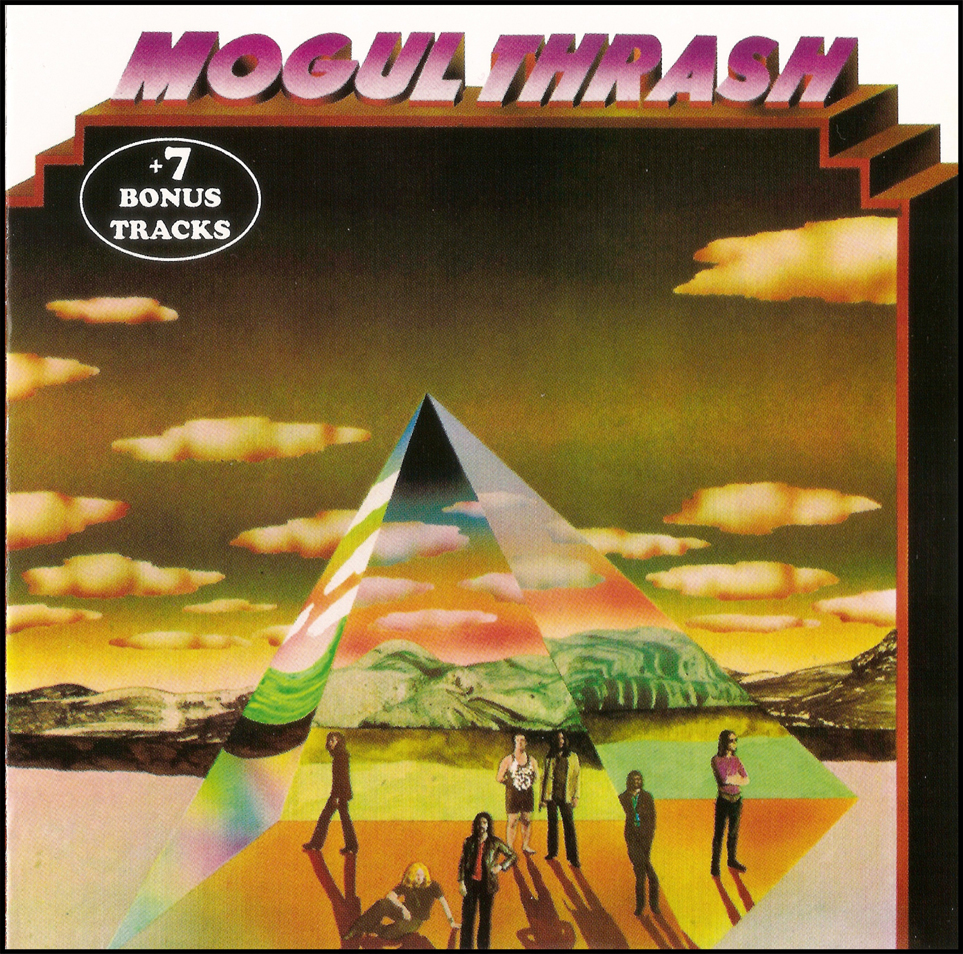
You decided to rework a song you had penned for Colosseum’s Valentyne Suite – “Elegy” – a personal favourite of mine. Could you comment on this and any or all of the other tracks off the Mogul Thrash album (anything that comes to mind, be it how each song was built up or any interesting bit of information).
I was happy that Colosseum had recorded “Elegy” but by now I looked at it in a very different way and felt that although the song was strong, it certainly didn’t reflect the way I had heard it when I wrote it and by now I was much more confident in my direction.
I felt that it would be done justice with Mogul Thrash and I wanted to put the record straight.
As for other tracks I think that generally we were moving in the right direction and we were all now getting involved in the writing process and songs and the feel were far more prominent. Johns voice was coming through and he and I had a good vocal blend. He too was gaining in confidence and started coming up with some really good stuff (e.g. St Peter).
The band did some sessions at the BBC in 1971, the tracks from which can be found on a recent CD reissue. Among them, “Fuzzbox”, “Conscience” and “I Can’t Live Without You” are not from the LP or single. Would I be right in thinking the last is another number you used to perform with Colosseum? Were these tracks to feature on a subsequent album, had there been one?
I can’t in all honesty remember those songs and I was actually reminded of them when someone recently sent me a link to something on Youtube.
I don’t remember re doing “Can’t Live Without You” but when I heard the other 2 songs I vaguely recalled them and we were probably going to record them for the next album had they been approved but that was the time when things started falling apart and so were a bit of a blur.
See “the reasons for Mogul Thrash disbanding” for a more in depth analysis.
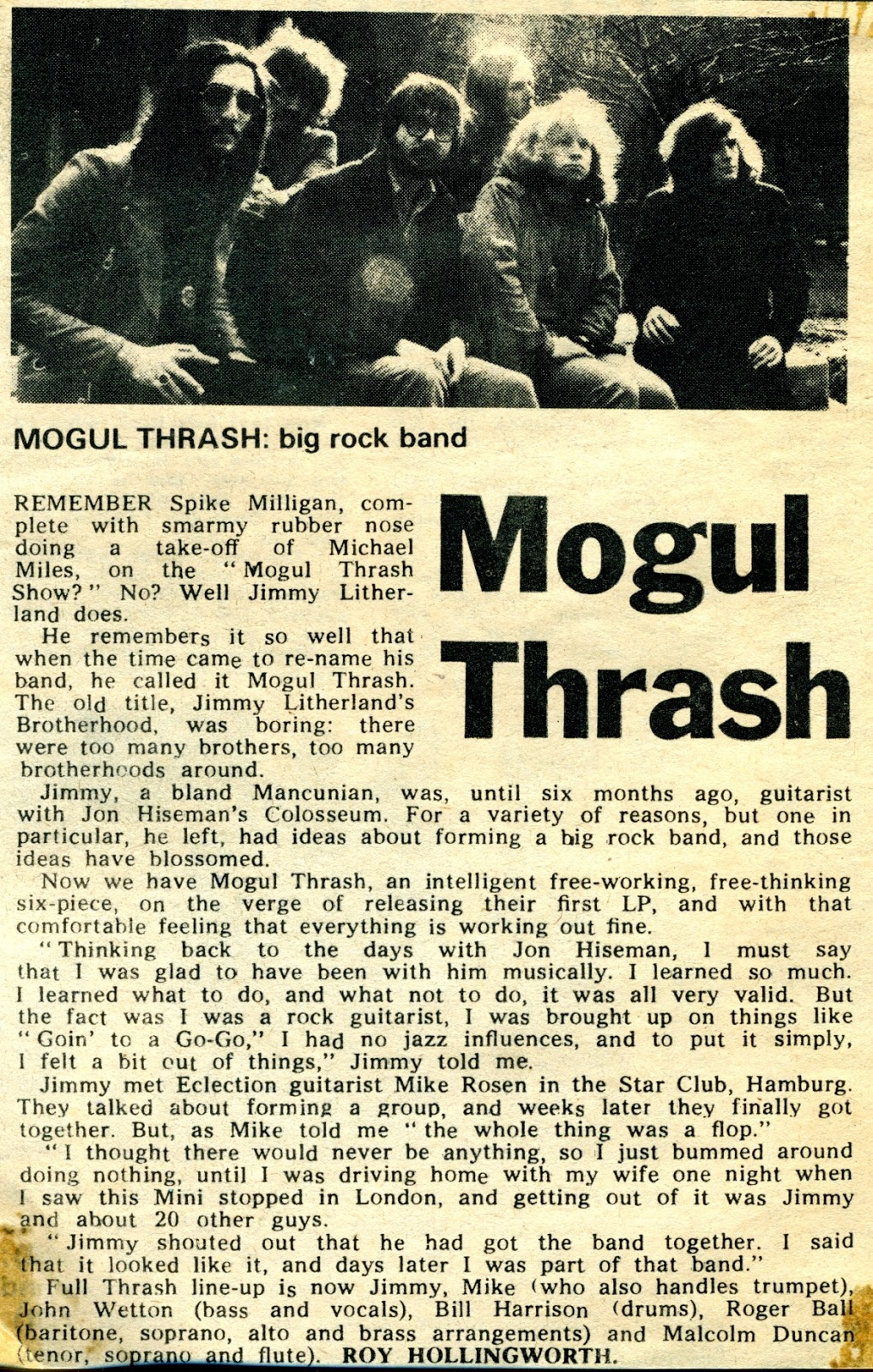
Can you recall some of the venues Mogul Thrash played at and again, our readers would love to hear any great stories from ‘on the road’!
We were sent by our management to play in a club in Palermo, Sicily, for a week or so, to warm the band up before we did any gigs in England. At that time they had never seen anyone with long hair and we all had really long hair. Everywhere we went we would be followed by dozens of children and as we passed a barbers shop an old guy with a beard came running out to see, one side of his face was shaved and the other side had a full white beard and he had the towel still round his neck, it was like a cartoon. The day after we arrived we had to go and meet the guy who had booked us at the Palermo Travel Agency, he was called Joe Napoli and he was from Chicago, I think that should just about tell everything. Because we couldn’t get around even to eat, we were transferred to a house near the beach. Mike Rosen was Jewish and was 6 feet 6 inches (about 2 meters) tall with a black beard and long black hair. Anyone having seen the MT album cover will know. We went swimming one day and when Mike came out of the sea the beach cleared, they thought it was the 2nd coming.
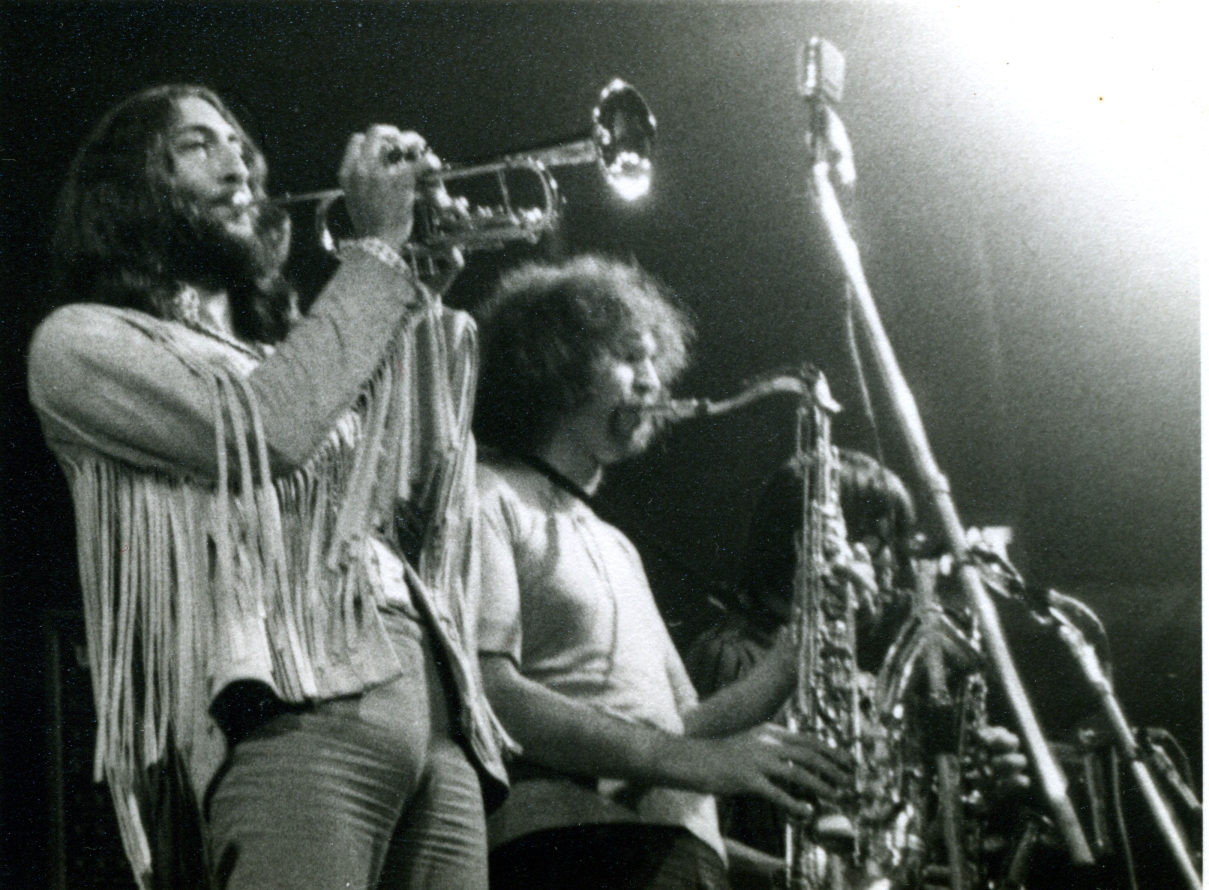
We were then sent to do some gigs in Italy and we did a club in Milan for a week. We should have gone onto another city but the people who had brought us out thought we were much too loud and so we were thrown out without getting paid.
We set off for home with very little money. We had 2 vans, one for the gear and one for the people (it was a six piece band most of whom were over 6 ft tall). On the way, as we were going over the Alps into Germany, the people van broke down. We called the ADAC to see if we could get sorted out but it was late on Thursday evening and, as it was the beginning of the holiday, they couldn’t help until the next Tuesday morning. As we had no money the thought of 4 or 5 days sleeping in a van with no food was very unappealing so although some were prepared to do it, I said I was going to hitch hike back to London. At that point they all had second thoughts and so we took out two seatbelts, tied them together and towed the van on the seatbelts all the way back to London. As the seatbelts kept snapping, by the time we got home it was about 1 metre long and full of knots.
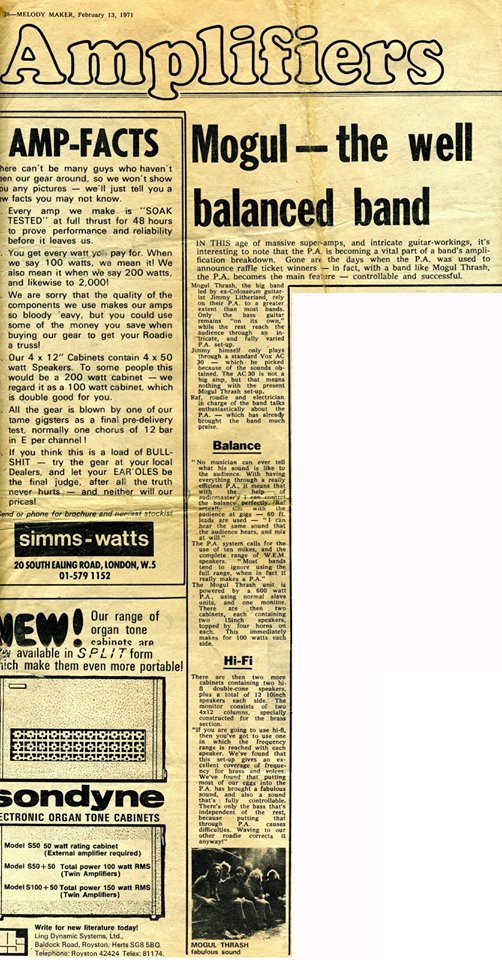
My favourite gig of the time was the Roundhouse in London which we played at a number of times on Sunday afternoons. We were very popular there and the sound was really good so we usually played very well.
What were the reasons behind Mogul Thrash disbanding?
When we were looking for a record company we auditioned for Atlantic Records. Nesuhi Ertegun (Ahmet’s brother, who owned Atlantic) came to London to listen to us at a pub in Kings Cross. He loved it, and we really liked him a lot and, as he had recorded John Coltrane, the brass section got on great with him. He wanted us and we wanted him. Atlantic was a great company who really got behind their artists and we were very excited.
He offered us a fantastic deal and we were thrilled. Then when we had a meeting with our manager, she told us that she had turned him down, we couldn’t believe it .It was the best company in the world and she turned it down. She signed us to RCA who turned out to be a complete disaster.
The big radio show at that time was on Sunday evenings on Radio Luxembourg. The DJ was David “Kid” Jenson and his show consisted of a “Chart” that was made up from requests from all over Europe. Over a few weeks Mogul Thrash was No 3 in the charts, everybody wanted it.
Unfortunately RCA had not distributed the album into the shops and nobody could buy it. It was a catastrophe. We were extremely annoyed at having been put in that ridiculous position by our management. Then we got wind of a few things going on behind the scenes and people in the band wanted to leave the manager, who, up to this point, had done a good job. So we left, she sued us for the money that she had put in and eventually lost. However, meanwhile, as we were looking for new management other things happened.
Both the vans broke down in the middle of the longest Ford strike in history and we couldn’t get parts and therefore couldn’t do gigs and so were broke. At that point Malcolm and Roger wanted to work with Alan Gorrie from Forever More, a band in the same management company, and good friends of us all. Alan was a great singer, writer and bass player and they asked me to go with them. I didn’t feel that I wanted to go in that direction, and felt that the type of stuff they wanted to play had no room for my kind of approach to the guitar, and so I said no. They became The Average White Band and although I think they’re great, I don’t regret that decision. Meanwhile John had been asked to join King Crimson and I had met a bass player and drummer that really excited me.
They were Bill Smith from Manchester on bass and Theadore Thunder, a 17 year old American drummer, both sang well and so we formed a 3 piece where we all sang. It was a great band, we called it Million.
Could you say a couple of words about the albums Bandit (1976) and Everything Stops for Tea (1972), by Bandit and Long John Baldry respectively and on which you played?
Million played some gigs with The Faces and, although I didn’t know it at the time, Rod Stewart and Elton John, who were very good friends of John Baldry wanted to put him back on the “blues map” John had lost his way by singing “Mexico” and “Let The Heartaches Begin” but his thing was the blues, and I have to say he was fantastic. We were asked to join and we did the “Everything Stops For Tea” album, produced by Rod Stewart, and quite a few gigs.

It all came to a halt when John’s boyfriend got jealous of Theadore who, although wasn’t gay to the best of my knowledge, was sometimes mistaken for being so. John’s boyfriend started rows and fights with Theodore so we left. Long John Baldry was a really good guy and an absolutely brilliant singer and it was a shame but it was time to move on.
Myself, Bill and Theodore then added Dave Rose on keyboard and did an American and European Tour with Dick Heckstall-Smith playing his “Pirates Dream” concept, supporting Deep Purple.
After that the same line up joined Leo Sayer and did his “Just A Boy” album and toured with him, both America and Europe.
Then I met Cliff Williams. He was the bass player with a band called “Home” with Laurie Wisefield (who has since been with Wishbone Ash and Tina Turner). I became good friends with Cliff and thought it would be good one day to work together.
I got a call one day, out of the blue, from a girl I knew in San Francisco, asking would I be interested in playing with her band doing the Bay Area. I jumped at the chance and flew over and had a great time for about a year. I played with some great people, Gaylord Birch (Pointer Sisters) Greg Erico and Bobby Vega (Sly And The Family Stone) Billy Roberts (writer of “Hey Joe”) just loads of good players. Then just as I was ready to come home I got a call from Cliff. He wanted me to join Bandit. It seemed perfect so I came home to London and joined them. Their drummer wasn’t happening for me and so I suggested Graham Broad. I’d played with him some time before in Dave Rose’s band. They loved him and he joined.
We were signed to Arista, by Clive Davis, on the same day that he signed Whitney Houston.
We had the business set up, and we toured and did the Bandit Album. We also did a European tour with Alexis Korner. We played as the support act and then came on as his band. He was another great guy. I loved his singing and he was a pleasure to work with.
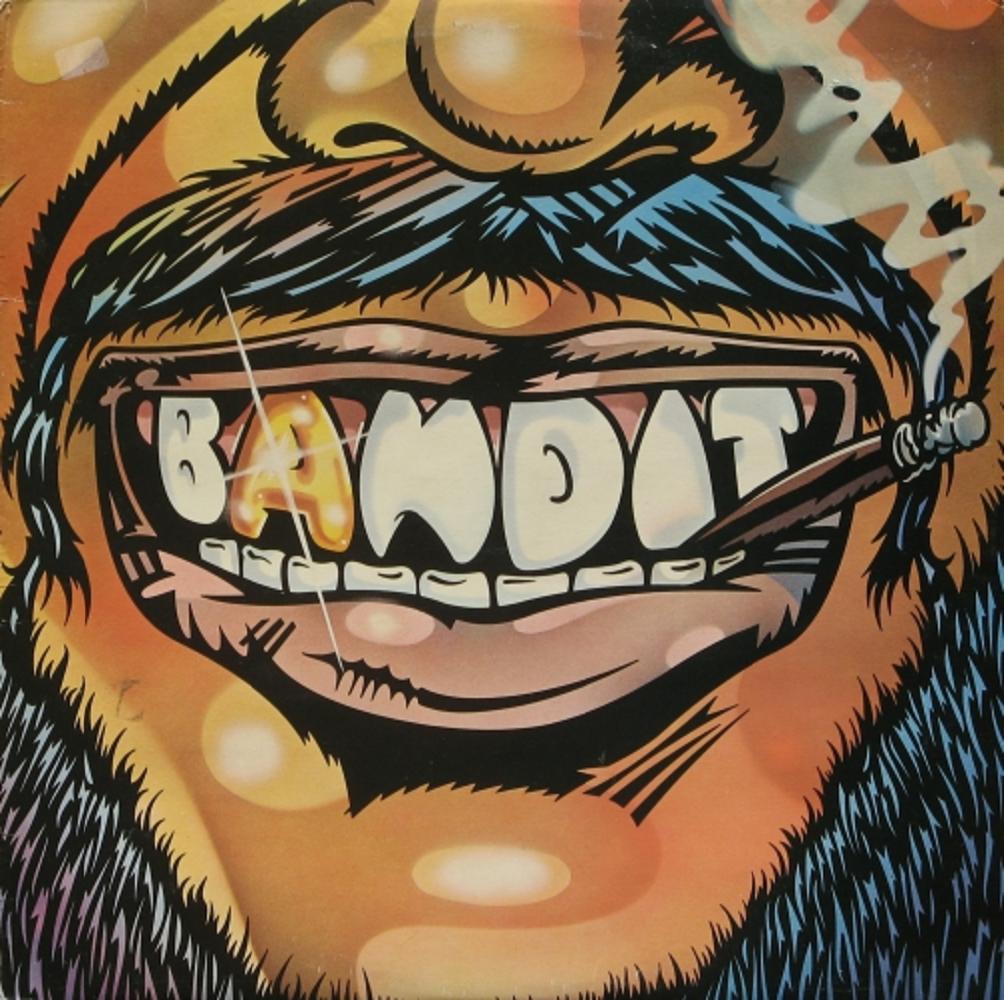
We had a fantastic record deal and a fantastic publishing deal.
However the album was a nightmare and the politics became unbearable, so many bad things went on.
Eventually we did The Old Gray Whistle Test (another nightmare) and the following day a meeting was called and Cliff and I parted company with Bandit. The lawsuits went on for 20 years, fortunately I wasn’t involved in any of that.
Cliff Williams was asked to join AC/DC and is still with them to this day. Graham plays with Bill Wyman’s Rhythm Kings and Roger Waters. Danny McIntosh is with Kate Bush.
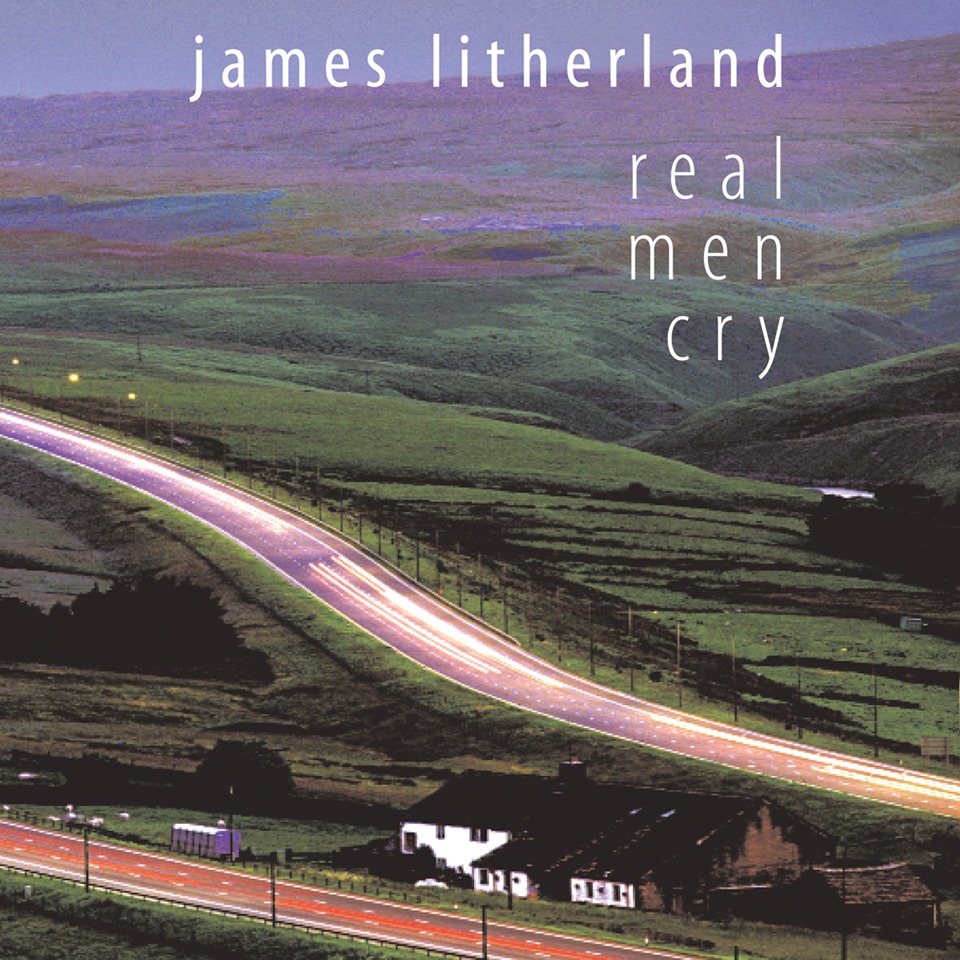
You still play and tour today, with your most recent album, Real Men Cry, being all-acoustic. Could you tell us more?
After Bandit I’d seriously had enough of bands and decided to make a living playing music without all the managers / lawyers / record companies etc as up to that point I had never made any money. I did sessions and gigs, independently so I went off the radar but I’ve always loved playing and have always been playing. I was also at the forefront of home recording technology and as soon as serious recording quality became affordable I jumped on it and have never recorded any of my stuff in a commercial recording environment since. I’ve had a studio at home for over 20 years. When I brought out 4th Estate (named before the book by Jeffrey Archer) I formed a great band but could not get the gigs to pay for it and I felt that if it didn’t pay for itself I wasn’t going to do it. I’m definitely not going to do the “Pay To Play” thing, I’m not a “bread head” but there is a limit, so the next album I did was all acoustic which
a) Showcased the songs as there is nowhere to hide on acoustic guitar, if the song doesn’t work that’s tough.
b) I could work without a band when necessary and still make a living.
I have done quite a few gigs with Tony Reeves of Colosseum recently, and did The Edinburgh Jazz And Blues Festival amongst other things, so I like to keep active musically.
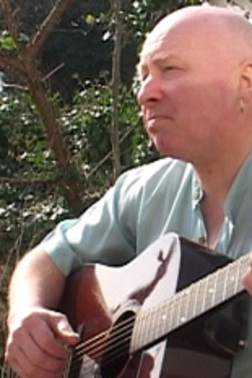
I’d like to finish off by thanking you again for granting us this interview and ask you what your thoughts are on Mogul Thrash looking back all those years? What would you like to say to all the Mogul Thrash fans out there?
It’s been very interesting looking back as it’s not something I usually do, I’ve usually got something going to concentrate on. Looking back on Mogul Thrash now, there are some great memories, we had some great times and made some music that I’m really proud to have been involved with. One great buzz is that one of my son’s favourite tracks of all time is “What’s This I Hear” My son has turned out to be a great and innovative musician in his own right. I turned down a lot of opportunities because I wasn’t prepared to compromise on certain things. One thing that I’ve learned is that you can’t have everything but I’ve had most of the things that mean a lot to me.
To all the Mogul Thrash fans out there I’d like to say a big thank you and I’m sorry there wasn’t more.
– Sébastien Métens
James Litherland Official Website


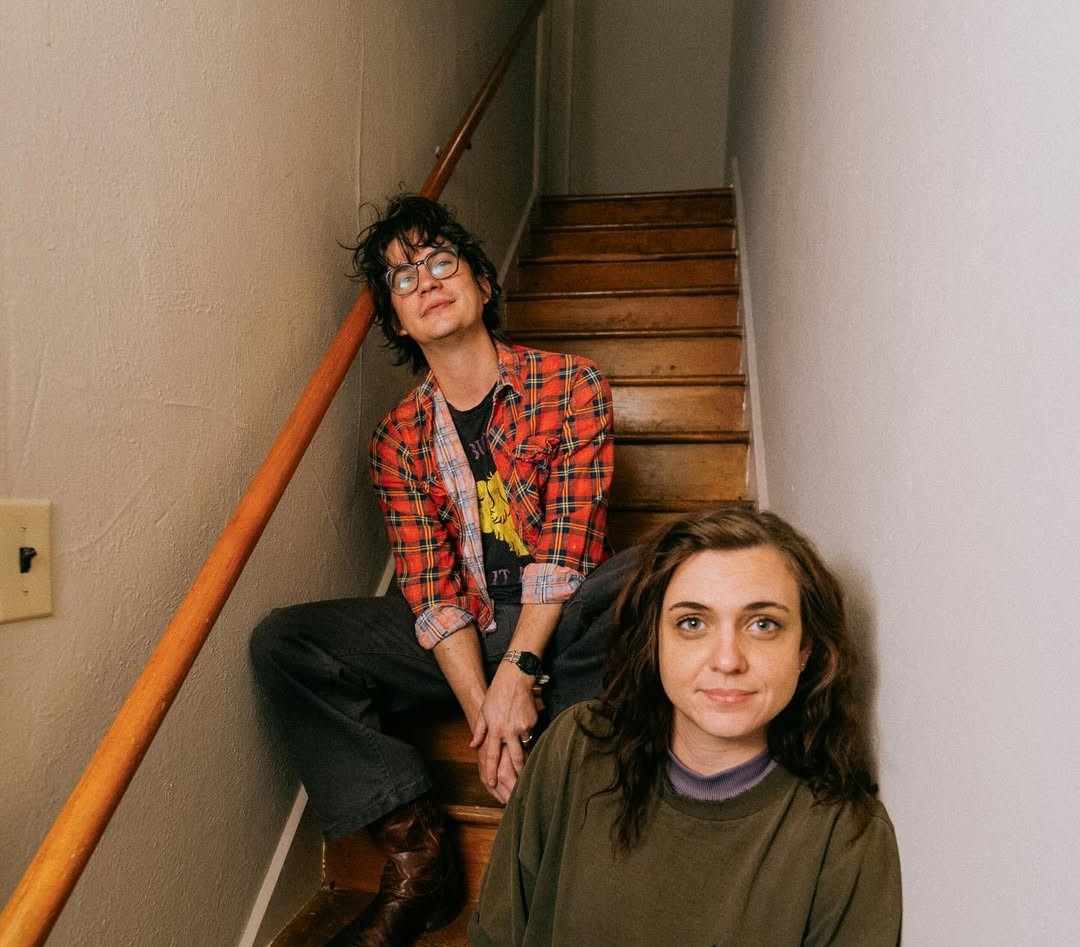
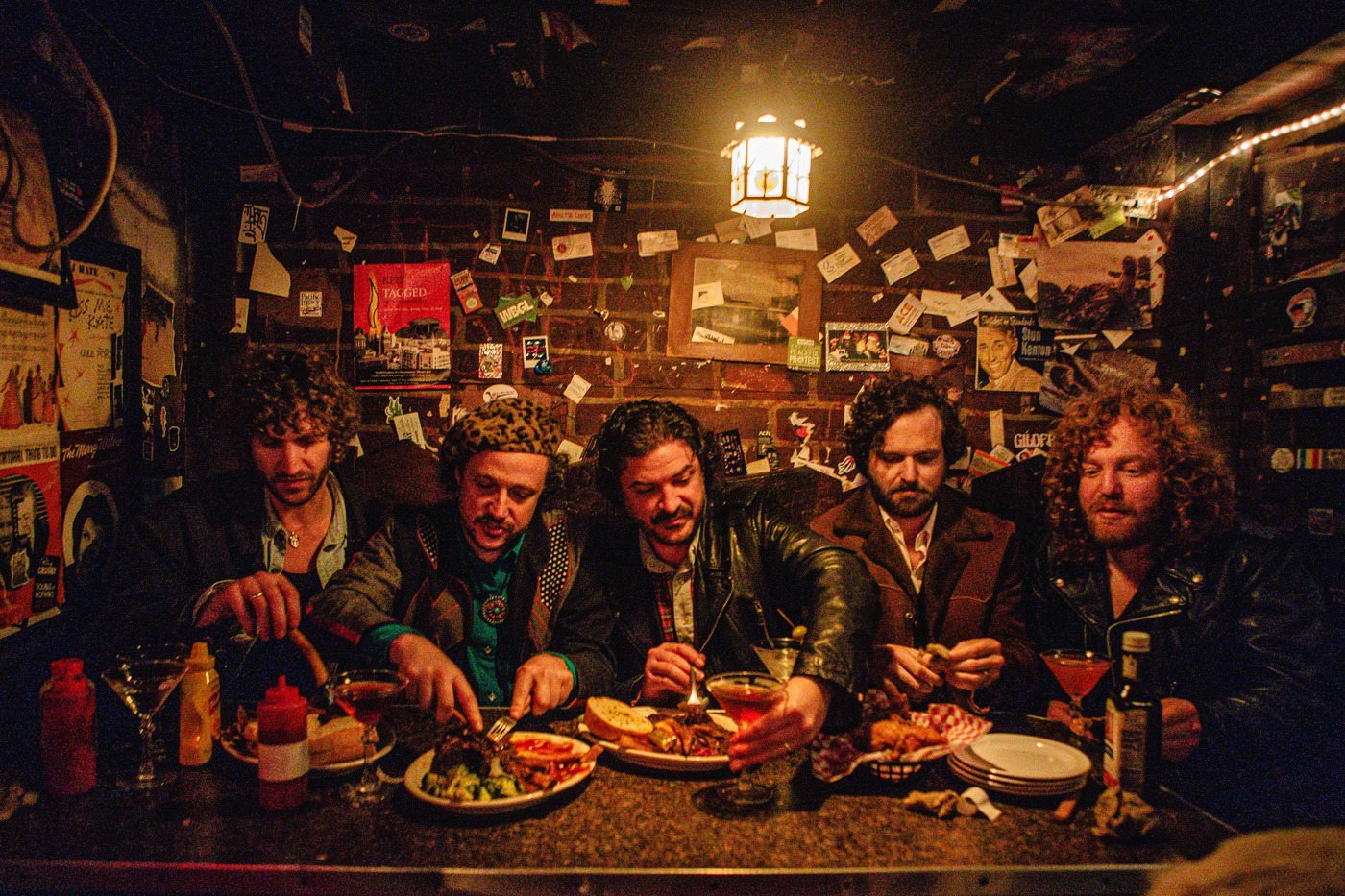
great interview!! Elegy being one of the greatest songs in the 70`s..
would like to know what cd you were talking about = The band did some sessions at the BBC in 1971, the tracks from which can be found on a recent CD reissue. Among them, “Fuzzbox”, “Conscience” and “I Can’t Live Without You” are not from the LP or single.
thanks for your help
all best
Thanks Sadness! Glad you enjoyed it and I'd have to agree with you on "Elegy".
The CD reissue I was referring to is on the Flawed Gems label (GEM62). You can find a copy here:
http://www.rockadrome.com/store/rock-prog/rock/mogul-thrash-mogul-thrash-cd.html
I was fortunate to play with James after Bandit, as he was getting serious about the acoustic. We called ourselves 'Doo Wop & Rhythms' and for a couple of years, we played a blend of r&b, pop and blues with a hint of jazz around the edges at clubs in London. I've been fortunate to play with some amazing musicians, but for my money, no-one plays an acoustic like James, he's phenomenal. His electric playing speaks for itself. I learned a lot working with him, and with his help, came into my own as a singer, guitarist and writer. Our voices also blended really well. Some of the material we recorded still stands on its own two feet.
I knew a fair bit about James' past, but still learned things about him from the interview. I'm happy that he's still writing and playing…he's a true artist if ever I've met one.
James Litherland Best voice Colosseum had. Say no more